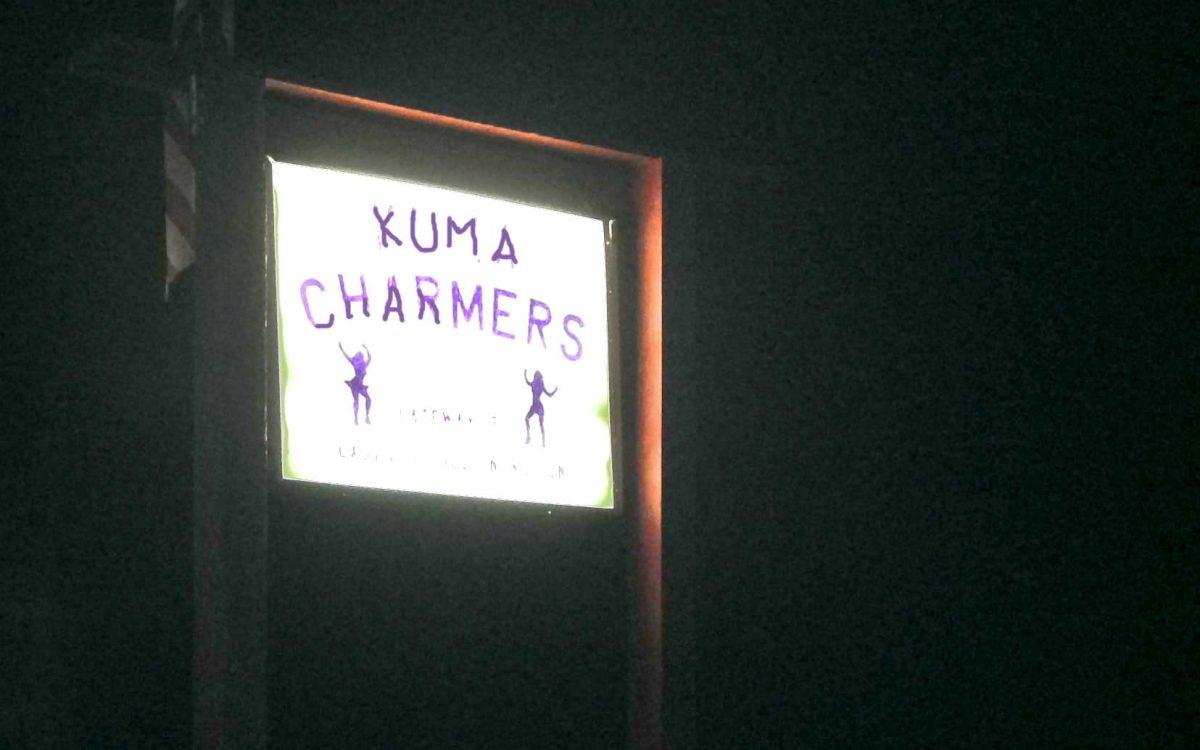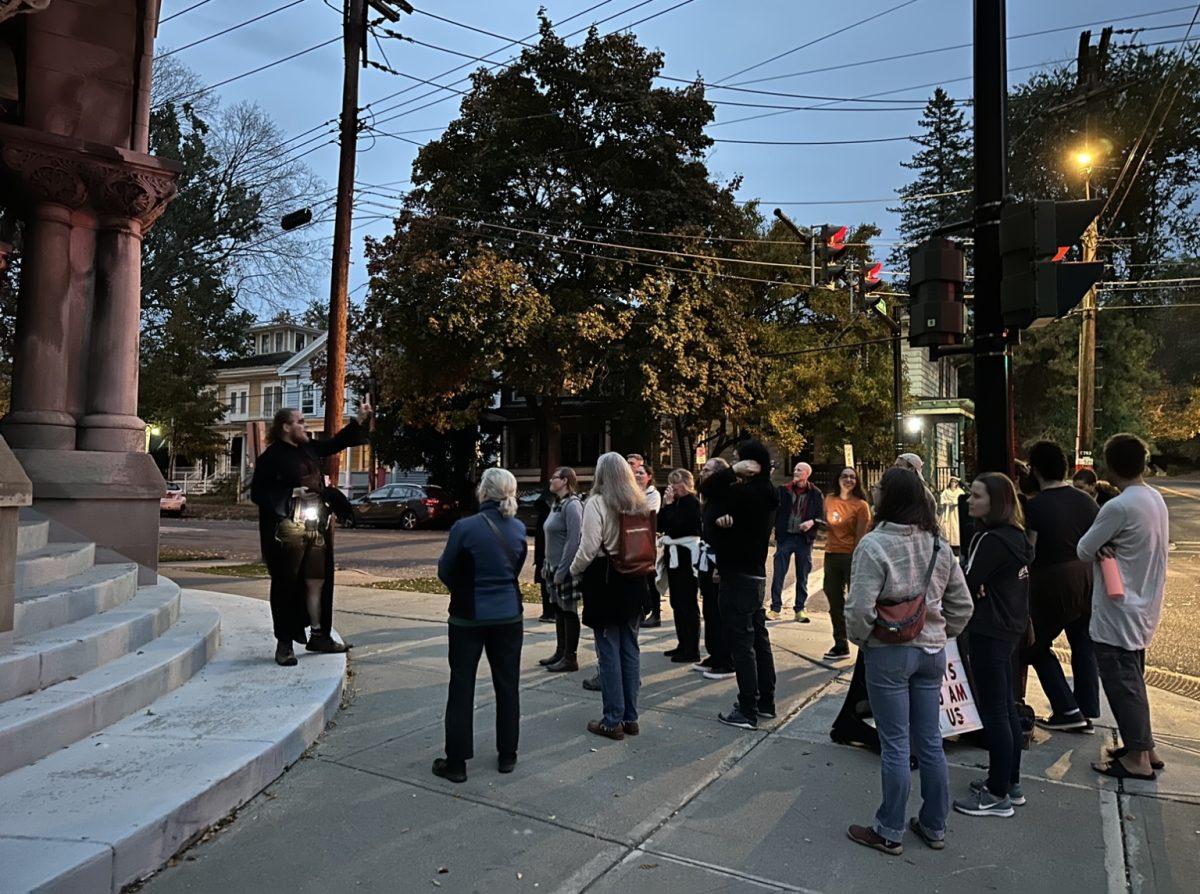Gumball machines and framed images of 1940s-looking burlesque models line the walls of Kuma Charmers. Young, bleach-blonde girls walk around the dilapidated building in worn, tired bustiers and string thongs, smiling at their gentleman callers.
The owner stands behind the bar, not stacked with bottles of tequila or carved in lines of cocaine, but modestly standing in front of a refrigerator filled with root beer and water bottles, alongside shelves of candy, all for purchase.
Kuma Charmers is the only nude dance club in Tompkins County, and owner Bob Oliver said he runs a respectable business.
“I think a lot of people relate prostitution and drugs to this kind of business,” Oliver said. “It doesn’t have to be that kind of business.”
Kuma’s operations are the same as other restaurants and bars in the area; the employees receive wages and benefits, and the establishment charges its patrons sales tax just like other state restaurants and entertainment venues.
The nude dance club opens its doors Wednesday through Saturday nights with varying cover charges depending on the night’s theme—no higher than $10. Customers are required to tip at least $1 per song while a girl dances. “Side dishes,” including private lounge dances, are available for an extra fee.
However, one Albany-area strip club believes taxing its patrons is in violation of New York State Tax Code Statute 1101. The statute states that dance performance venues are exempt from charging patrons sales tax.
Stephen Dick owns Nite Moves in Latham, NY. The IRS audited Dick in early 2004 and found he was not charging his patrons sales tax on admission and refreshments. Dick, who started at Nite Moves as a bartender and moved up through the ranks, assumed the tax exemption applied to all types of dramatic and music arts performances, but the state said otherwise.
“The fact that our dancers have a message that deal with sexuality and adult nature, they feel that that doesn’t qualify for the exception,” Dick said.
The case rose through the New York State Court of Appeals but was ruled against during each overview of the business’ case. The Supreme Court denied the chance for Dick to present his case in front of the US’s highest court on October 15. The court felt the case did not meet the statute’s qualifications and therefore was not worthy of hearing. Dick believes this is content-based taxing.“What the government is doing is telling people through taxation what forms of entertainment they should view by making it more expensive to view one over another,” Dick said.
Dick’s attorney, Bob Corn-Revere, believes the case has an unfair slant because of the bias against strip clubs throughout the country.
“Taxes are a way of limiting the people who you think are unworthy or are engaging in expressive activities you don’t like,” Corn-Revere said. “There’s a long tradition of Supreme Court cases striking down taxes that single out particular speakers for disfavorable treatment.”
Kuma’s opened in 1981 as a restaurant and topless bar. It operated as such for 15 years before Oliver and wife Callie Jo decided to forego their liquor license in order to have a fully nude bar. Accustomed to restaurant billing, Oliver continued charging his patrons sales tax when the club switched to a strictly performance venue.
“There was a time when we thought the lawyers had said that we didn’t have to do that, but because I had already been paying taxes on all of these dances anyway, I just kept doing it,” Oliver said.
Dick and Oliver are only two strip club owners in New York State dealing with the repercussions of content-based taxation. The Association of Club Executives has started talking about the issue because more club owners believe in the art of the nude dance and want to help each other. Dick, the state’s chapter president, is organizing more interaction between owners to help deal with the taxation.
“I was one of the first clubs to have to deal with this,” Dick said. “All of the large, chain clubs thought they were immune at the time. Now that they’ve been affected by it directly, everyone is getting more cooperative with each other, doing what we can to beat this.”







